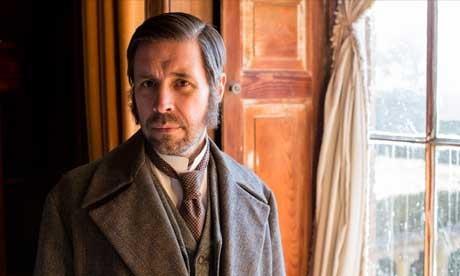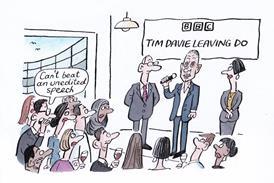‘You can’t quite shake the feeling that it’s one of those projects that was nobody’s first choice.” Read on for the verdict on last night’s TV.

“I’m not entirely sure what’s gone wrong here. It’s written by Neil McKay, who was deservedly nominated for a Bafta for Appropriate Adult, and it doesn’t look as if ITV have skimped on the budget. But you can’t quite shake the feeling that it’s one of those projects that was nobody’s first choice. Why was it made? Because the first one performed pretty well, I’m guessing, and there’s always a steady market for gas-lamp detection, as Ripper Street recently demonstrated. But that isn’t enough to make it fly, and it doesn’t help that the plot feels arbitrary in its twists and turns.”
Tom Sutcliffe, The Independent
“Perhaps if ITV had trimmed their ambitions and commissioned Whicher for an hour-long slot instead of the interminable two it took, it might have been worth the watch. It was well produced and, unlike Ripper Street, didn’t graft 21st-century attitudes and forensics onto Victorian times and crimes. [But] time lagged, characters loomed and receded. By the end there was so much murk and muddle all I could figure out was that the niece had been killed by her father, who didn’t know she was his daughter, for reasons lost forever in the pea-souper of a plot. I’m still baffled.”
Gerard O’Donovan, The Telegraph
“All murky Victorian London streets, dodgy geezers with mutton chops drinking tankards of ale in dodgy inns, and horribly murdered young ladies … it bears a passing resemblance to Bafta-nominated Ripper Street, no? Almost as if they thought: let’s see what’s doing well over there, and then have some of that over here… Colman doesn’t really get to show her range, or her warmth (she doesn’t even smile until right at the end). And Whicher isn’t my absolute favourite detective – modest, self-effacing, meticulous, a good man certainly, but a bit of a bore … I sometimes got a bit lost in the Victorian gloom.”
Sam Wollaston, The Guardian
The Fantastic Mr Feynman, BBC2
“An absorbing documentary that burrowed deep into the life of ‘one of the most extraordinary scientists of the 20th century’. This was biography in the heroic mould, an unalloyed celebration of a man whose maverick tendencies affected everything he did in life (he died in 1988), from his wartime work on the A-bomb, to the problem solving that won him the Nobel Prize for his work in quantum electrodynamics… Feynman’s impish charm and bubbling-over desire to share his inexhaustible scientific wonder crackled off the screen.”
Gerard O’Donovan, The Telegraph
“I could have easily watched two hours of this even if I only understand about 90% of quantum electrodynamics, if I’m honest… Luckily Feynman, and his lectures, are all over the internet, where he continues to find new disciples 25 years after his death.”
Sam Wollaston, The Guardian
The United States of Television, BBC2
“What was traced here was the trajectory from Dr Kildare – a pin-up of medical integrity – to House, Hugh Laurie’s pill-popping misanthrope. It’s an arc from white-hat simplicity to psychological ambiguity and – in the case of Dexter and Omar from The Wire – outright criminality. And whereas ethical judgement used to come running through the story, it’s now been delegated to the audience. It’s been an almost entirely benign development if you value complexity and nuance in the stories you see on screen. But it has to be said that audiences don’t always get the judgements right.”
Tom Sutcliffe, The Independent
The Voice, BBC1
“Tonight’s half-dozen sing-offs distinctly lacked drama. Not only were most of the outcomes predictable but none of the judges took the opportunity to ‘steal’ the losers… Despite his comedically short trousers and dodgy dance moves, gravelly Danny County knocked out rap-soul duo De’Vide. Belfast busker and Prince Harry lookalike Conor Scott did likewise with irritatingly bickery lovebirds Smith & Jones. Scott’s teary reaction and embrace with his mother were meant to provide the episode’s emotional climax, but the predictable result rather undermined the effect.”
Michael Horgan, The Telegraph


























No comments yet